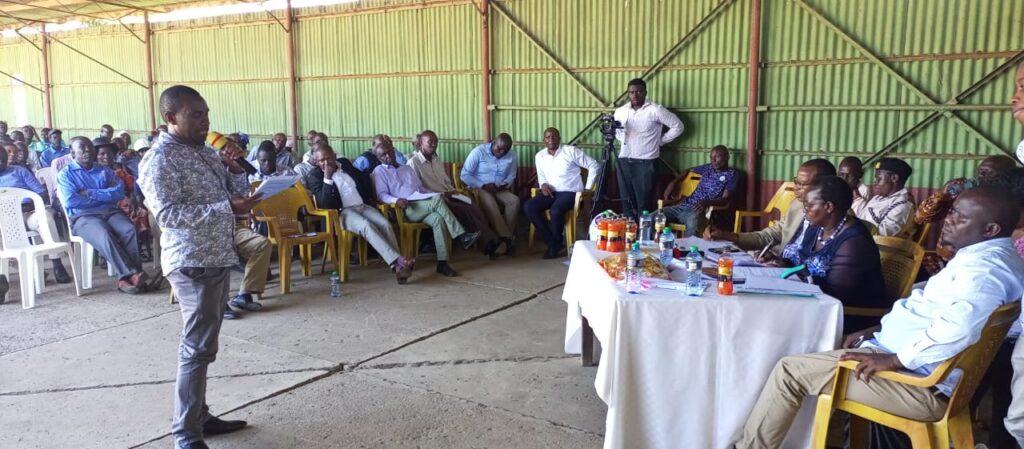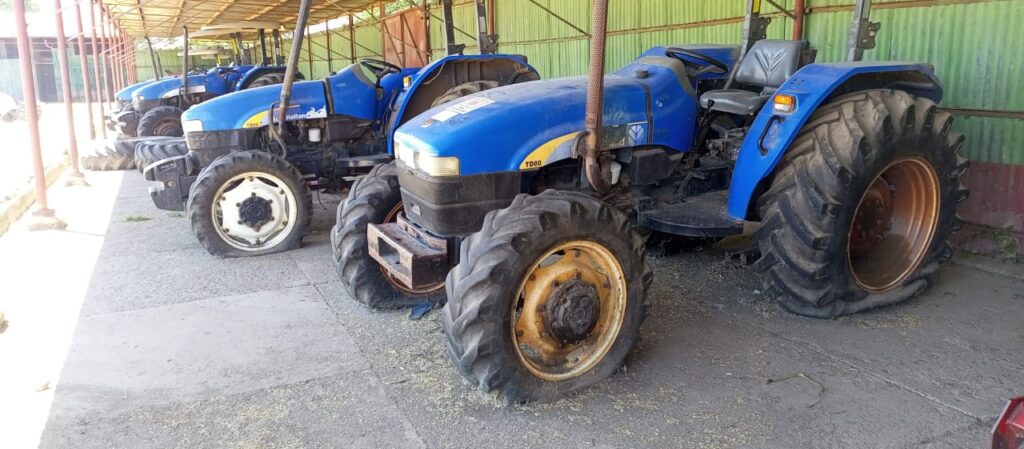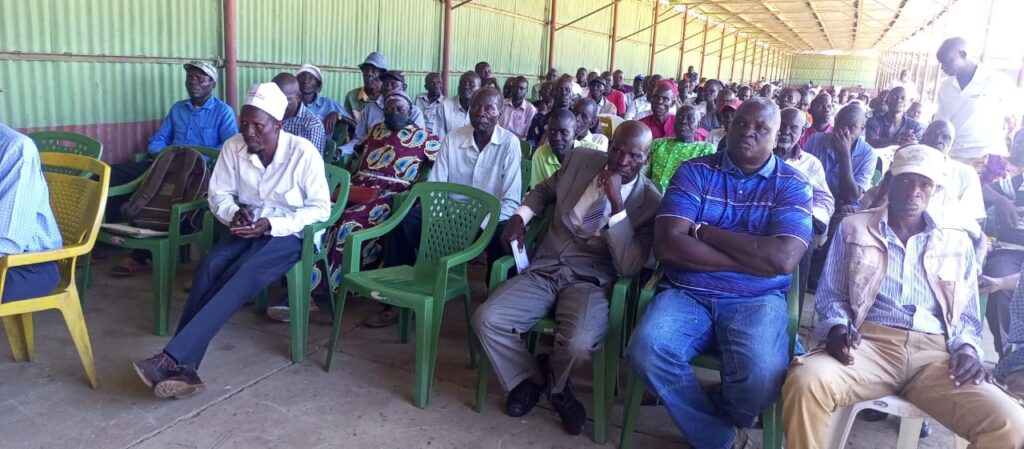For the past six years, West Kano Irrigation Scheme has been bedeviled with lots of challenges, negatively impacting rice production in the area.
With approximately 2, 300 acres of farm land available for production, farmers claim that a paltry 30 per cent has actively been put to use.
The National Irrigation Authority (NIA) has set out a raft of measures in a drastic intervention to have the scheme meet its potential.
All these will require a multi-sectoral approach, and we are up to the task
NIA Acting CEO Engineer Charles Muasya
Top in the log is installation of a new water pump within the next three months to resolve the challenges of water supply into the scheme.
Also in line is setting up proper structures to facilitate operations at the scheme and engagement of stakeholders in a bid to smoothen the management of the scheme.
Capacity building of scheme managers and farmers, expansion of the scheme capacity,
“All these will require a multi-sectoral approach, and we are up to the task,” said the authority’s Acting CEO Engineer Charles Muasya.

Parliamentary Committee
Muasya spoke when he made submissions before the National Assembly’s Public Petitions Committee which had visited the scheme on a fact finding mission on Tuesday.
The committee visit had been necessitated following a petition by a farmer, Pastor Ochieng Odindo over the worrying state of the scheme.
In Odindo’s petition to parliament, he noted that farmers at the scheme were fast abandoning the trade due to the myriad challenges faced.
And during the committee hearing session at the scheme’s offices in Kabonyo, Kadibo Sub County, farmers noted that for the past six years, they have faced challenges on supply of water due to lack of a pump.
The farmers also noted that stalled farm machineries have led to increased cost of mechanization services at the scheme.
They pointed out scheme management challenges, and lack of access to markets for their produce.

“We have 13 tractors grounded, and most farmers here cannot afford the cost of production, and have chosen to lease their farms,” said Odindo.
“Most of our rice here is bought at cheaper price, and processed in Uganda, denying us maximum benefits from our sweat,” said Dan Omoro, a farmer.
New water pump
The scheme is located at the mouth of Lake Victoria, and supply of water to the farms require pumping upwards into the canals draining it downwards into the farms.
The pump is also used to evacuate water from the farms during flooding seasons.
According to Muasya, the pump which previously served the scheme was moved to Ahero Irrigation Scheme to avert a possible total crop loss due to flooding.
He however noted that the said pump has since been outlived its lifeline, and is set to be commissioned, with procurement process already ongoing to acquire a new and more modern pump for West Kano farmers.
“The pump we are bringing in is more powerful than the old one,” he said.
Muasya was accompanied by the authority’s Acting Deputy Manager in charge of Operations Joel Tanui who is a former manager at the scheme.
The farmers had also noted that most of the infrastructure at the scheme had been damaged, including access roads and canals.
Each farmer contributes Sh2, 230 per acre annually for maintenance. This translates to about Sh8 million which is far less than what is required for the job
Joel Tanui
Mr Tanui noted that there were plans to relook at the scheme infrastructure funding model so as to ensure proper maintenance.
According to Tanui, the scheme requires at least Sh30 million annually for the maintenance of the infrastructure.
“Each farmer contributes Sh2, 230 per acre annually for maintenance. This translates to about Sh8 million which is far less than what is required for the job,” said Tanui.
He added: “A scheme should be able to fully fund this, but because we understand the situation of our farmers, we have to subsidize and top up from the authority’s budget from the exchequer.”

The Public Petitions Committee was led by its vice chair Janet Sitienei who noted that her team will condense the submissions into a report which would inform actions to save the scheme.
“We will consider the issues in our report, and share with Parliament which may be discussed or directed to the relevant authorities to take action,” said Sitienei.
She said rice is one of the staple foods in the country, and there was need to ensure the scheme is revamped, adding that it could play a huge role in ensuring food security in the country.
